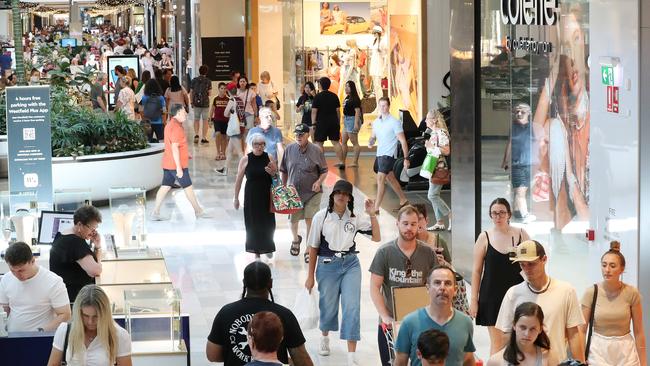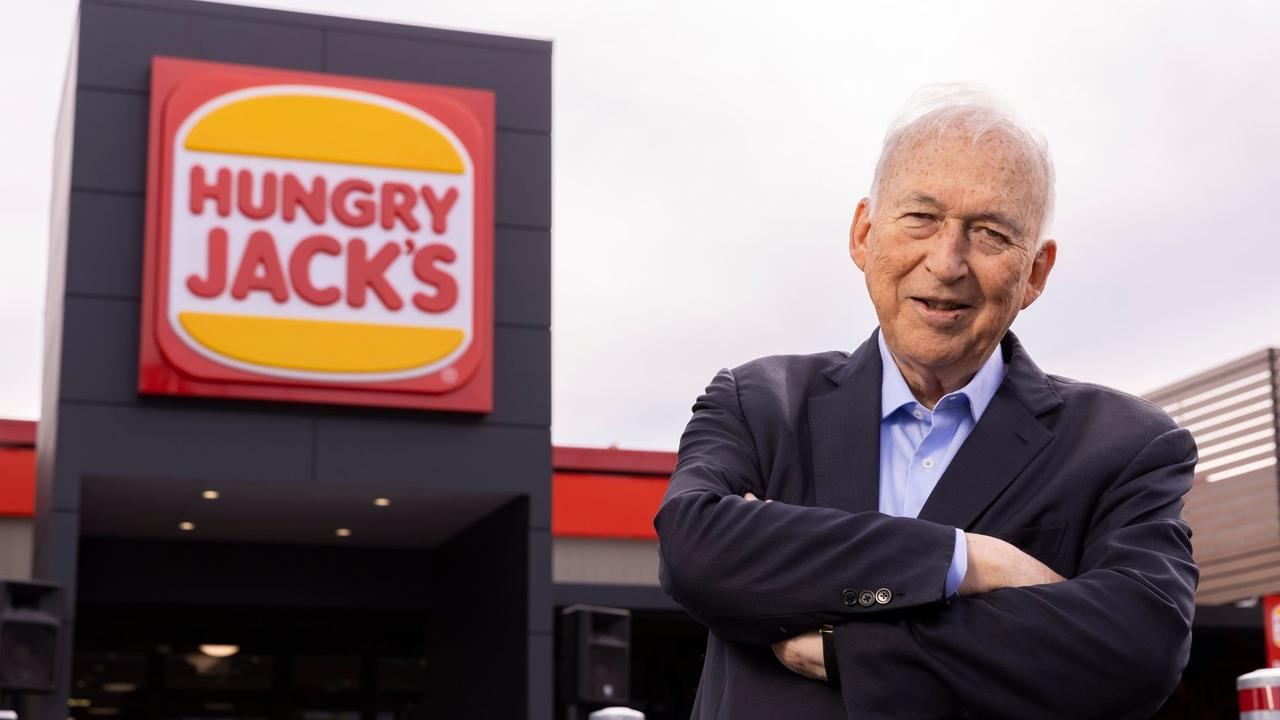Under-pressure low and middle-income earners are slowing their spending, says UBS
Australian households on low and middle incomes plan to rein in their spending in the next year, according to a UBS survey.

Spending expectations by low and middle-income earners for the next 12 months are at their lowest point since the middle of 2021, as they draw down on savings to pay for rising food, utility and fuel bills.
The latest consumer survey conducted by investment bank UBS paints a bleak picture for the majority of Australian households, although those on higher incomes, typically earning more than $120,000 a year, are tipped to keep their spending at the shops and on goods and services relatively stable in the coming year.
“Consumer spending expectations for the next 12 months remain positive yet have fallen to the lowest since mid-2021,” said UBS retail and consumer analyst Shaun Cousins.
“Stable for high income earners (earning above $120,000) with expectations falling for middle ($48,000-$120,000) and low (under $48,000) income earners.
“Income expectations remain for growth yet fell again as it fell for low-income earners, with a slight increase for middle and high-income earners.
“Savings expectations have plateaued, with an increase led by high-income earners and stabilisation for middle income earners, with low-income earners expecting to continue to draw on savings to fund spending.”
UBS found that given the backdrop of declining spending intentions for low and middle-income earners there would likely be a shift from spending on discretionary goods and services to essential items such as food and utilities.
“Spending on discretionary goods and services, for example furniture and household appliances, recreation goods, eating out and takeaway food, alcohol, are forecast to decline as cost-of-living pressures skew spend to essentials such as groceries, utilities, fuel, insurance, rent and healthcare,” Mr Cousins said, on the release of the UBS third quarter consumer survey.
And as households attempt to save money on everyday needs they are increasingly turning to the giant online pure-play retailers to help them stretch their dollar further, with Amazon and Catch the big winners in this shift.
The UBS survey found that Amazon, and Catch owned by Perth-based conglomerate Wesfarmers, had increased their primary share of the online grocery market against pre-Covid trends.
The survey said that Amazon’s share of that market had lifted to 9.4 per cent in the third quarter, up from 8.9 per cent before the pandemic hit.
For Catch its share was 4.1 per cent, up from 3.6 per cent, and Kogan.com’s market share rose slightly to 1.3 per cent from 1.2 per cent.
Among the major supermarkets, Woolworths’ share of online grocery spending slipped slightly to 44.7 per cent from 45.4 per cent, Coles fell to 28.8 per cent from 30.8 per cent and IGA rose to 3.3 per cent from 2.4 per cent.
But different retail categories would encounter the decline in unique ways, especially as more well-to-do households kept on spending in key areas like hardware and travel, and some consumers used savings to fund purchases.
“Home improvement spending intentions have stabilised although down on prior years, with high-income earners having the highest intentions, yet this has reduced from earlier peaks,” Mr Cousins said.
“Domestic and international travel intentions are flattish, with savings a source of funding for 62 per cent of respondents, with higher incomes and reduced other spending further sources of travel spend.
“Online spending intentions for the next 12 months have fallen significantly.”
Mr Cousins said while the recent reporting season was not as bad as expected, Australian consumption was slowing.
“The consumer is expected to change spending by trading down by price point in apparel and general merchandise, trading down by price point to lower gross profit private label in food and shifting to at home versus out of home (food consumption), with evidence these trends have commenced,” he said.



